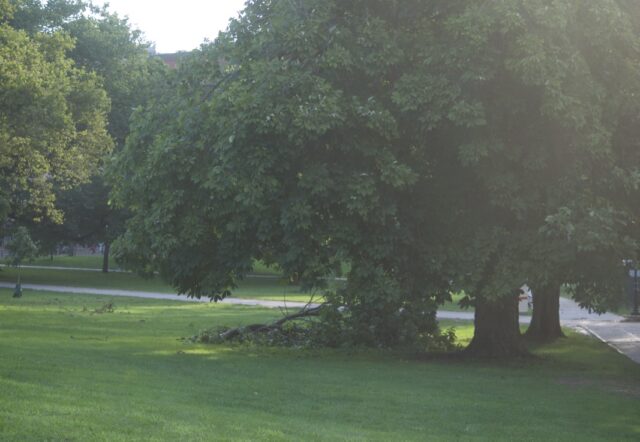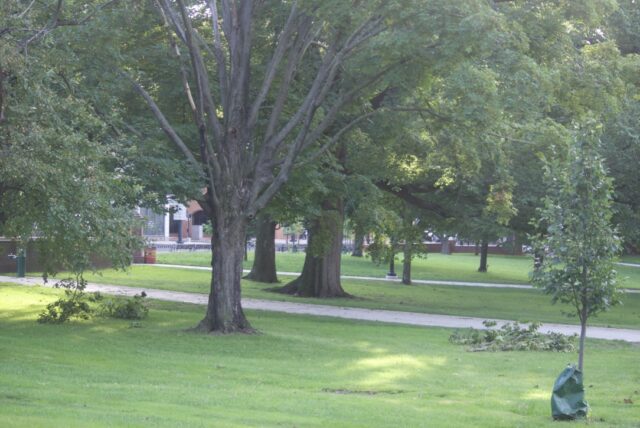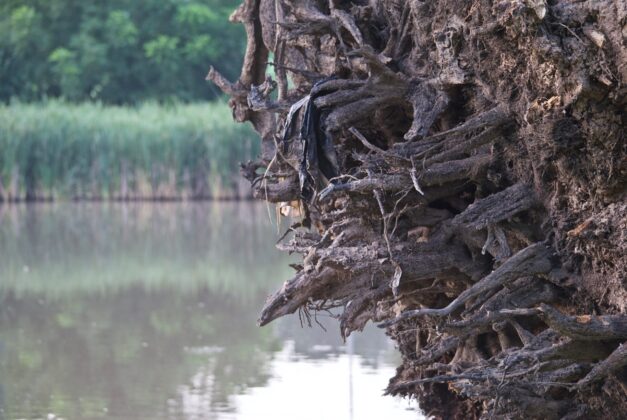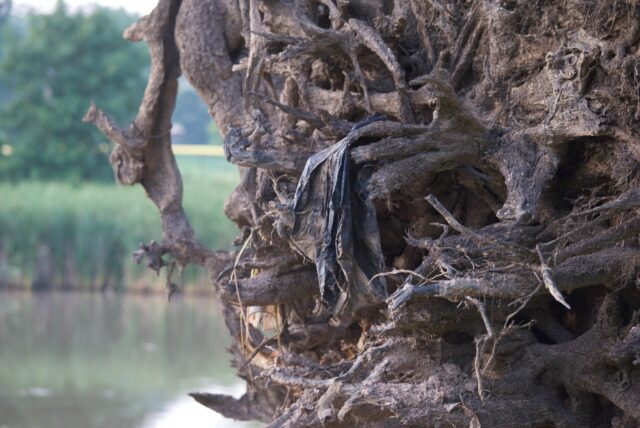Following a storm in July, one of the local news outlets — doesn’t matter which one — made a pronouncement of where damage was and wasn’t, saying there wasn’t anything notable in Hartford.

I wonder what that was based on. Was it because there weren’t as many power outages?

There were trees and sizable branches down in Bushnell Park, the park by the State Armory, Pope Park, and probably elsewhere. Limbs were down along Park Terrace, blocking sidewalks. A massive tree toppled by the Pope Park pond.
When data is compiled about car crashes, the injury description is typically based on what the responding officer determines at the scene. Police are not medical professionals. Broken bones requiring multiple surgeries would be interpreted as serious injuries by the owner of those bones, but usually this is recorded as a “suspected minor injury” if the victim remained conscious and was not bleeding from the head. The result: we get skewed data when the injuries are not fatal as the ranking is based on the perspective of someone not experiencing the pain, and that someone, additionally, not being an expert in pain.

A day or so after those thunderstorms, there was a better news piece in which Hartford’s city forester, while not directly responding to the aforementioned “no considerable damage” piece, made it obvious by the ridiculous hours she was working that there were many urgent tree issues. What this meant for her was working several consecutive 80-hour weeks to deal with trees coming down from excess water.
Before these storms, at the end of June, there was a long piece in the Courant in which she explained how several seasons of drought have been impacting our trees. She has spoken of this before. Lots of work, not enough staff. It’s clear to me, from everything I’ve read and from conversations with her, that the forester is doing her best. Nobody should have to put in those kind of hours, no matter how much they love their jobs.

The next round of elected decision-makers in Hartford should pump money into the Forestry Division. Find grants. Cut from the bloated police budget. July was the hottest recorded month on record. Trees alone won’t solve that, but they are objectively helpful — when they are not keeling over in large numbers.

Climate Possibilities is a new series about climate mitigation, along with resilience, resistance, and restoration. It’s about human habitat preservation. It’s about loving nature and planet Earth, and demanding the kind of change that gives future generations the opportunity for vibrant lives. Doomers will be eaten alive, figuratively. All photographs are taken in Hartford, Connecticut unless stated otherwise.

Jane Macy-Painter
Heathers!
Kerri Ana Provost
Yes…but there’s another layer 😉